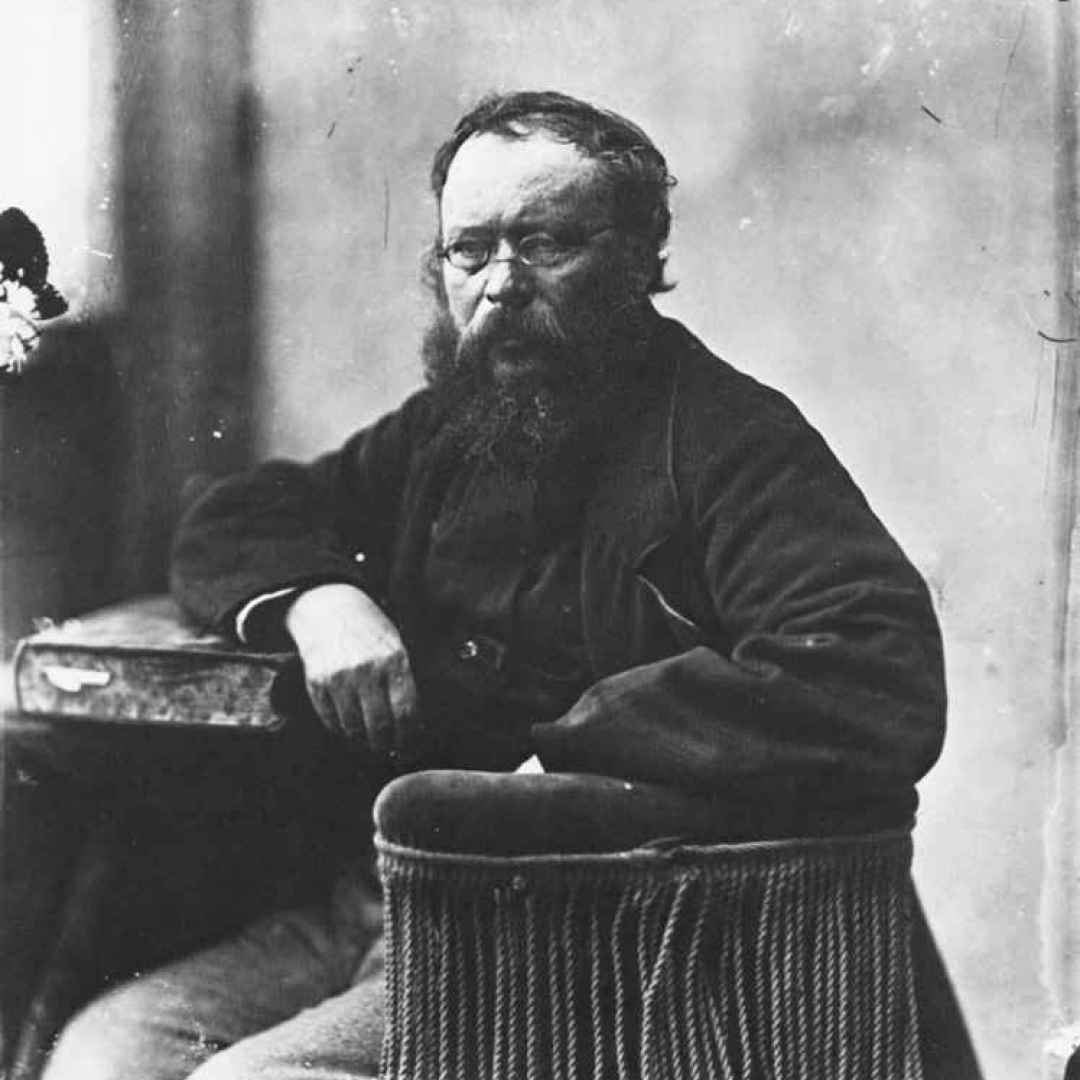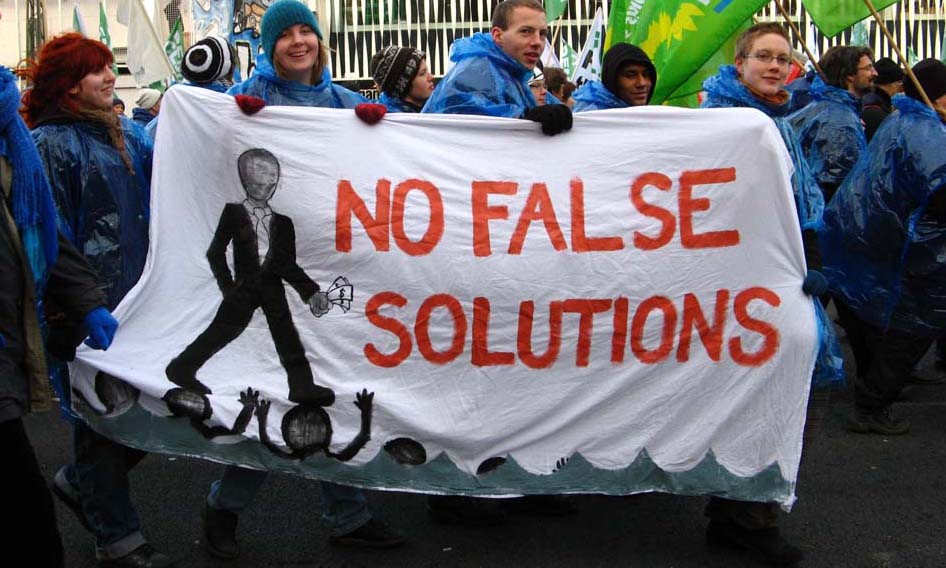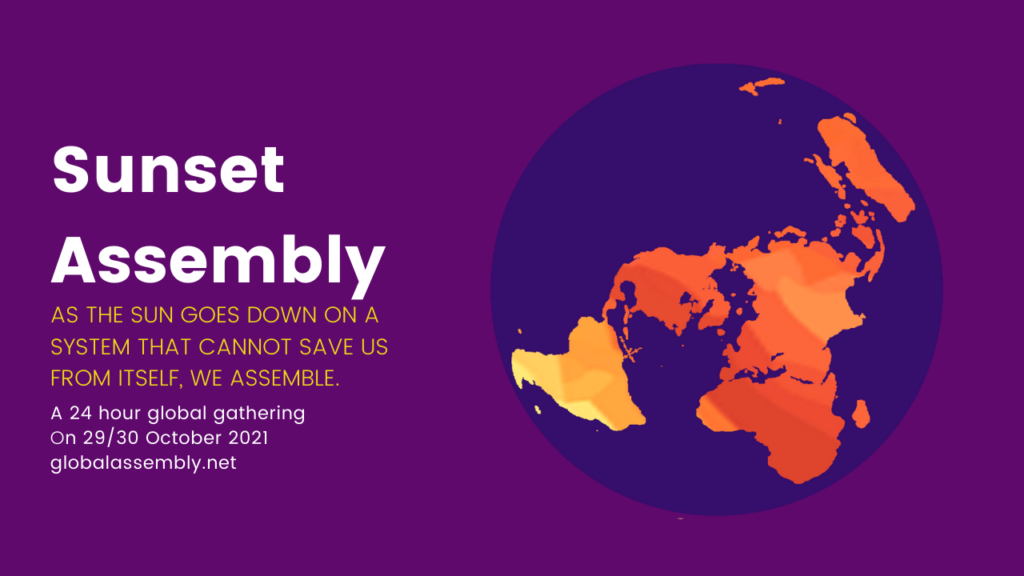
Anarchist thinkers
This story first appeared in Building a Revolutionary Movement
By Adam H
This post briefly describes 25 anarchist thinkers, following on from the political ideology post. I took the list of anarchist thinkers from ‘Demanding the Impossible: A History of Anarchism’ by Peter Marshall.
William Godwin
William Godwin (1756-1836) is said to be the founder of philosophical anarchism. In his book An Enquiry Concerning Political Justice (1793), he argued that “government is a corrupting force in society, perpetuating dependence and ignorance, but that it will be rendered increasingly unnecessary and powerless by the gradual spread of knowledge and the expansion of the human understanding. Politics will be displaced by an enlarged personal morality as truth conquers error and mind subordinates matter. In this development the rigorous exercise of private judgment, and its candid expression in public discussion, plays a central role, motivating his rejection of a wide range of co-operative and rule-governed practices which he regards as tending to mental enslavement, such as law, private property, marriage and concerts.”
Inspired by the optimism of the French Revolution, Godwin believed a time would come when the mind would dominate matter so ‘mental perfectibility’ would take physical form so it would be possible to control illness, ageing resulting in humans becoming immortal. Godwin’s moral theory is described as utilitarian. [1]
Max Stirner
Max Stirner (1806–1856) is the author of Der Einzige und sein Eigenthum (1844). In English, it is known as The Ego and Its Own or The Unique Individual and their Property. It is argued that “the form and content of Stirner’s major work are disconcerting. He challenges expectations about how political and philosophical arguments should be conducted and shakes the reader’s confidence in the moral and political superiority of contemporary civilisation. Stirner provides a sweeping attack on the modern world as increasingly dominated by “religious” modes of thought and oppressive social institutions, together with a much briefer sketch of a radical “egoistic” alternative in which individual autonomy might flourish. The historical impact of The Ego and Its Own is sometimes difficult to assess, but Stirner’s work can confidently be said: to have had an immediate and destructive impact on the left-Hegelian movement; to have played an important contemporary role in the intellectual development of Karl Marx (1818–1883); and subsequently to have influenced significantly the political tradition of individualist anarchism.” [2]
Pierre-Joseph Proudhon
Pierre-Joseph Proudhon (1809 – 1865) was a French socialist, politician, philosopher, economist and the founder of mutualist philosophy. He was the first person to describe himself as an anarchist and is a very influential anarchist thinker, with some describing him as the ‘father of anarchism’.
“Proudhon became a member of the French Parliament after the Revolution of 1848, whereafter he referred to himself as a federalist. Proudhon described the liberty he pursued as “the synthesis of communism and property”. Some consider his mutualism to be part of individualist anarchism while others regard it to be part of social anarchism.
His first major work was What Is Property? (1840), where is asserted that ‘property is theft’. His work interested Karl Marx and they become friends. This ended with their disagreement over Proudhon’s The System of Economic Contradictions, or The Philosophy of Poverty (1846).
Proudhon advocated workers’ councils, associations and cooperatives, plus individual worker/peasant possession over private ownership or the nationalisation of land and workplaces. He believed social revolution was achievable peacefully. “Proudhon unsuccessfully tried to create a national bank, to be funded by what became an abortive attempt at an income tax on capitalists and shareholders. Similar in some respects to a credit union, it would have given interest-free loans.” [3]
Michael Bakunin
Mikhail Bakunin (1814 – 1976) was a Russian revolutionary anarchist, socialist and founder of collectivist anarchism. He is also a very influential anarchist and believed to be the founder of the revolutionary socialist and social anarchist traditions.
His revolutionary politics caused him to move between several countries, be deported from Germany and be imprisoned in Russia. He joined the International Worker Men’s Association and led the anarchist faction. There was a conflict between Bakunin and Marx, with the latter arguing for the use of the state to introduce socialism. “Bakunin and the anarchist faction argued for the replacement of the state by federations of self-governing workplaces and communes.” The anarchists lost the conflict and Bakunin was expelled from the International. Bakunin founded the Anti-Authoritarian International in 1872. From 1870 Bakunin wrote several texts on the State, anarchism and God. He was also involved in several European movements including insurrections in France and Italy.
Bakunin is believed to have “had a significant influence on thinkers such as Peter Kropotkin, Errico Malatesta, Herbert Marcuse, E. P. Thompson, Neil Postman and A. S. Neill as well as syndicalist organizations such as the Wobblies, the anarchists in the Spanish Civil War and contemporary anarchists involved in the modern-day anti-globalization movement.” [4]
Peter Kropotkin
Pyotr Alexeyevich Kropotkin (184 – 1921) was a “Russian anarchist, socialist, revolutionary, economist, sociologist, historian, zoologist, political scientist, human geographer and philosopher who advocated anarcho-communism. He was also an activist, essayist, researcher and writer.”
“Born into an aristocratic land-owning family, Kropotkin attended a military school and later served as an officer in Siberia, where he participated in several geological expeditions. He was imprisoned for his activism in 1874 and managed to escape two years later. He spent the next 41 years in exile in Switzerland, France (where he was imprisoned for almost four years) and England. While in exile, he gave lectures and published widely on anarchism and geography. Kropotkin returned to Russia after the Russian Revolution in 1917, but he was disappointed by the Bolshevik state.”
“Kropotkin was a proponent of a decentralised communist society free from central government and based on voluntary associations of self-governing communities and worker-run enterprises. He wrote many books, pamphlets and articles, the most prominent being The Conquest of Bread and Fields, Factories and Workshops, but also Mutual Aid: A Factor of Evolution, his principal scientific offering. He contributed the article on anarchism to the Encyclopædia Britannica Eleventh Edition[14] and left unfinished a work on anarchist ethical philosophy.” [5]
Élisée Reclus
Jacques Élisée Reclus (1830 – 1905) “was a renowned French geographer, writer and anarchist. He produced his 19-volume masterwork, La Nouvelle Géographie universelle, la terre et les hommes (‘Universal Geography’), over a period of nearly 20 years (1875–1894). In 1892 he was awarded the Gold Medal of the Paris Geographical Society for this work, despite having been banished from France because of his political activism. Reclus advocated nature conservation and opposed meat-eating and cruelty to animals. He was a vegetarian. As a result, his ideas are seen by some historians and writers as anticipating the modern social ecology and animal rights movements.” [6]
Errico Malatesta
Errico Malatesta (14 December 1853 – 22 July 1932) “was an Italian anarchist and revolutionary socialist. He spent much of his life exiled from Italy and in total spent more than ten years in prison. Malatesta wrote and edited a number of radical newspapers and was also a friend of Mikhail Bakunin.”
It has been described that Malatesta had a two-part strategy by the start of the nineteenth century. First, the unification of the anarchist and anti-parliamentary socialists into a new anarchist socialist party as anarchism was a minority movement on the Italian left. The other part was to advocate a syndicalist strategy to encourage socialists into insurrections and to maintain their revolutionary conscience. Malatesta’s form of anarchist communism can be described as ‘anarchism without adjectives’.
Others describe Malatesta’s form of anarchism to be ‘anarchist socialism’, which promoted the socialist character of anarchism and the need for anarchists to regain contact with workers, especially through the labour movement. [7]
Leo Tolstoy
Count Lev Nikolayevich Tolstoy (1828 – 1910) was a Russian writer who is regarded as one of the greatest authors of all time. Born into an aristocratic Russian family and best known for the novels War and Peace (1869) and Anna Karenina (1878).
“In the 1870s, Tolstoy experienced a profound moral crisis, followed by what he regarded as an equally profound spiritual awakening, as outlined in his non-fiction work A Confession (1882). His literal interpretation of the ethical teachings of Jesus, centering on the Sermon on the Mount, caused him to become a fervent Christian anarchist and pacifist. His ideas on nonviolent resistance, expressed in such works as The Kingdom of God Is Within You (1894), had a profound impact on such pivotal 20th-century figures as Mahatma Gandhi and Martin Luther King Jr. He also became a dedicated advocate of Georgism, the economic philosophy of Henry George, which he incorporated into his writing, particularly Resurrection (1899).” [8]
Josiah Warren
Josiah Warren (1798 – 1874) “was an American utopian socialist, individualist philosopher, polymath, social reformer, inventor, musician, printer and author. He is regarded by some as the first American anarchist (although Warren never used the term anarchism himself) and the four-page weekly paper he edited during 1833, The Peaceful Revolutionist, the first anarchist periodical published, was an enterprise for which he built his own printing press, cast his own type, and made his own printing plates.” [9]
Lysander Spooner
Lysander Spooner (1808 – 1887) “was an American individualist anarchist. He was also an abolitionist, entrepreneur, essayist, legal theorist, pamphletist, political philosopher, Unitarian, writer and a member of the First International. Spooner was a strong advocate of the labor movement and anti-authoritarian and individualist anarchist in his political views. His economic and political ideology has usually been identified as libertarian socialism and mutualism. His writings contributed to the development of both left-libertarian and right-libertarian political theory within libertarianism in the United States. Spooner’s writings include the abolitionist book The Unconstitutionality of Slavery and No Treason: The Constitution of No Authority, which opposed treason charges against secessionists. Spooner is also known for competing with the Post Office with his American Letter Mail Company. However, it was closed after legal problems with the federal government.” [10]
Benjamin Tucker
Benjamin Ricketson Tucker (1854 – 1939) “was an American anarchist and libertarian socialist. A 19th-century proponent of individualist anarchism which he called “unterrified Jeffersonianism”, Tucker was the editor and publisher of the American individualist anarchist periodical Liberty (1881–1908) as well as a member of the socialist First International. Tucker harshly opposed state socialism and was a supporter of libertarian socialism which he termed anarchist or anarchistic socialism as well as a follower of mutualism. He connected the classical economics of Adam Smith and the Ricardian socialists as well as that of Josiah Warren, Karl Marx and Pierre-Joseph Proudhon to socialism. Later in his life, Tucker converted to Max Stirner’s egoism.” [11]
Adin Ballou
Adin Ballou (1803 – 1890) “was an American proponent of Christian nonresistance, Christian anarchism and socialism, abolitionism, and the founder of the Hopedale Community. Through his long career as a Universalist and Unitarian minister, he tirelessly advocated for the immediate abolition of slavery, the principles of Christian anarcho-socialism, and promoted the nonviolent theory of praxis (or moral suasion) in his prolific writings. Such writings drew the admiration of Leo Tolstoy, who frequently cited Ballou as a major influence on his theological and political ideology in his non-fiction texts like The Kingdom of God is Within You, along with sponsoring Russian translations of some of Ballou’s works. As well as heavily inspiring Tolstoy, Ballou’s Christian anarchist and nonresistance ideals in texts like Practical Christianity were passed down from Tolstoy to Mahatma Gandhi, contributing not only to the nonviolent resistance movement in the Russian Revolution led by the Tolstoyans, but also Gandhi’s early thinkings on the nonviolent theory of praxis and the development of his first ashram, the Tolstoy Farm. In a recent publication, American philosopher and anarchist Crispin Sartwell wrote that the works by Ballou and his other Christian anarchist contemporaries like William Lloyd Garrison directly influenced Gandhi and Martin Luther King Jr., as well.” [12]
John Humphrey Noyes
John Humphrey Noyes (1811 – 1886) “was an American preacher, radical religious philosopher, and utopian socialist. He founded the Putney, Oneida and Wallingford Communities, and is credited with coining the term ‘complex marriage’.” [13]
Voltairine de Cleyre
Voltairine de Cleyre (1866 – 1912) “was an American anarchist known for being a prolific writer and speaker who opposed capitalism, marriage and the state as well as the domination of religion over sexuality and women’s lives which she saw as all interconnected. She is often characterized as a major early feminist because of her views. Born and raised in small towns in Michigan and schooled in a Sarnia, Ontario, Catholic convent, de Cleyre began her activist career in the freethought movement. Although she was initially drawn to individualist anarchism, de Cleyre evolved through mutualism to what she called anarchism without adjectives, prioritizing a stateless society without the use of aggression or coercion above all else. De Cleyre was a contemporary of Emma Goldman, with whom she maintained a relationship of respectful disagreement on many issues. Many of de Cleyre’s essays were collected in the Selected Works of Voltairine de Cleyre, published posthumously by Goldman’s magazine Mother Earth in 1914.” [14]
Emma Goldman
Emma Goldman (1869 – 1940) “was an anarchist political activist and writer. She played a pivotal role in the development of anarchist political philosophy in North America and Europe in the first half of the 20th century. Goldman was born in Russia and emigrated to the US in 1995. She was attracted to anarchism after the Chicago Haymarket affair and became a write and lecturer on anarchist philosophy, women’s rights and social issues. Goldman and Alexander Berkman attempted to assassinate financier Henry Clay Frick, as an act of propaganda of the deed. It was unsuccessful and Berkman served 14 years in prison. Goldman was imprisoned several times for ‘inciting riots’ and illegally distributing information on birth control. Goldman founded the anarchist journal Mother Earth in 1906. In 1917, Goldman and Berkman were given two-year prison sentences for encouraging people to avoid the First World War draft. Once released they were arrested again and along with 248 others were deported to Russia.
Goldman was initially supportive of the Russian Revolution but following the Kronstadt rebellion, she denounced the Soviet Union for its violent repression of opposing voices. She left the Soviet Union in 1923 and wrote about her experiences. In the 1930’s Goldman moved between England, Canada, France and Spain and wrote her autobiography.
“During her life, Goldman was lionized as a freethinking rebel woman’ by admirers, and denounced by detractors as an advocate of politically motivated murder and violent revolution. Her writing and lectures spanned a wide variety of issues, including prisons, atheism, freedom of speech, militarism, capitalism, marriage, free love, and homosexuality. Although she distanced herself from first-wave feminism and its efforts toward women’s suffrage, she developed new ways of incorporating gender politics into anarchism. After decades of obscurity, Goldman gained iconic status in the 1970s by a revival of interest in her life, when feminist and anarchist scholars rekindled popular interest.” [15]
Alexander Berkman
Alexander Berkman (1870 – 1936) “was a Russian-American anarchist and author. He was a leading member of the anarchist movement in the early 20th century, famous for both his political activism and his writing. Berkman was born in Vilna in the Russian Empire (present-day Vilnius, Lithuania) and immigrated to the United States in 1888. He lived in New York City, where he became involved in the anarchist movement. He was the one-time lover and lifelong friend of anarchist Emma Goldman. In 1892, undertaking an act of propaganda of the deed, Berkman made an unsuccessful attempt to assassinate businessman Henry Clay Frick during the Homestead strike, for which he served 14 years in prison. His experience in prison was the basis of his first book, Prison Memoirs of an Anarchist. After his release from prison, Berkman served as editor of Goldman’s anarchist journal, Mother Earth, and later established his own journal, The Blast. In 1917, Berkman and Goldman were sentenced to two years in jail for conspiracy against the newly instated draft. After their release from prison, they were arrested—along with hundreds of others—and deported to Russia. Initially supportive of that country’s Bolshevik revolution, Berkman and Goldman soon became disillusioned, voicing their opposition to the Soviets’ use of terror after seizing power and their repression of fellow revolutionaries. They left the Soviet Union in late 1921, and in 1925 Berkman published a book about his experiences, The Bolshevik Myth.
While living in France, Berkman continued his work in support of the anarchist movement, producing the classic exposition of anarchist principles, Now and After: The ABC of Communist Anarchism. Suffering from ill health, Berkman committed suicide in 1936.” [16]
Gustav Landauer
Gustav Landauer (1870 – 1919) “was one of the leading theorists on anarchism in Germany at the end of the 19th and the beginning of the 20th century. He was an advocate of social anarchism and an avowed pacifist. In 1919, he was briefly Commissioner of Enlightenment and Public Instruction of the short-lived Bavarian Soviet Republic during the German Revolution of 1918–1919. He was killed when this republic was overthrown. Landauer is also known for his study of metaphysics and religion, and his translations of William Shakespeare’s works into German.” [17]
Johann Most
Johann Joseph “Hans” Most (1846 – 1906) was a German-American Social Democratic and then anarchist politician, newspaper editor, and orator. He is credited with popularizing the concept of ‘propaganda of the deed‘.”
In Germany, he edited several revolutionary socialist newspapers. He argued against patriotism, conventional religion and advocated violent action to bring about revolutionary change. He was forced to leave Germany and moved to France, then London. He founded a new anarchist newspaper there. He was imprisoned by the British state for 18 months for writing about his delight of the assassination of Alexander II of Russia. Following his release, he moved to the US. He continued publishing his newspaper in New York and was imprisoned there too for supporting the assassination of US President McKinley. [18]
Rudolf Rocker
Johann Rudolf Rocker (1873 – 1958) was a German anarchist writer and activist. Some describe him as an anarcho-syndicalist, he described himself as an anarchist without adjectives. He believed that anarchist schools of thought represented “different methods of economy” with the main aim for anarchists was “to secure the personal and social freedom of men”.
As a young man, he joined the SPD and was part of the German labour movement. He was a follower of Bakunin, a revolutionary, radical leftist and anti-Marxist. Rocker moved around Europe in the early twentieth century. He became a regular writer for a syndicalist publication and was part of the 1920 international syndicalist conference that led to the founding of the International Workers Association (IWA) in 1922. Rocker returned to Germany in 1926 and was concerned by the rise of nationalism and fascism. He was later exiled from Nazi Germany.
Rocker published a well-known text, ‘In Pioneers of American Freedom’, “a series of essays, he details the history of liberal and anarchist thought in the United States, seeking to debunk the idea that radical thought was foreign to American history and culture and had merely been imported by immigrants.” [19]
Mohandas Gandhi
Mohandas Karamchand Gandhi (1869-1948) “was an Indian lawyer, anti-colonial nationalist and political ethicist who employed nonviolent resistance to lead the successful campaign for India’s independence from British rule and in turn to inspire movements for civil rights and freedom across the world.
Born and raised in a Hindu family in coastal Gujarat, Gandhi trained in the law at the Inner Temple, London, and was called to the bar at age 22 in June 1891. After two uncertain years in India, where he was unable to start a successful law practice, he moved to South Africa in 1893 to represent an Indian merchant in a lawsuit. He went on to live in South Africa for 21 years. It was here that Gandhi raised a family and first employed nonviolent resistance in a campaign for civil rights. In 1915, aged 45, he returned to India. He set about organising peasants, farmers, and urban labourers to protest against excessive land-tax and discrimination. Assuming leadership of the Indian National Congress in 1921, Gandhi led nationwide campaigns for easing poverty, expanding women’s rights, building religious and ethnic amity, ending untouchability, and above all for achieving swaraj or self-rule.
Also in 1921, Gandhi adopted the use of a short dhoti woven with hand-spun yarn as a mark of identification with India’s rural poor. He began to live in a self-sufficient residential community and to eat simple food; he undertook long fasts as a means of both introspection and political protest. Bringing anti-colonial nationalism to the common Indians, Gandhi led them in challenging the British-imposed salt tax with the 400 km (250 mi) Dandi Salt March in 1930 and in calling for the British to quit India in 1942. He was imprisoned many times and for many years in both South Africa and India.
Gandhi’s vision of an independent India based on religious pluralism was challenged in the early 1940s by a Muslim nationalism which demanded a separate homeland for Muslims within British India. In August 1947, Britain granted independence, but the British Indian Empire was partitioned into two dominions, the Hindu-majority India and the Muslim-majority Pakistan. As many displaced Hindus, Muslims, and Sikhs made their way to their new lands, religious violence broke out, especially in the Punjab and Bengal. Abstaining from the official celebration of independence in Delhi, Gandhi visited the affected areas, attempting to alleviate distress. In the months following, he undertook several hunger strikes to stop the religious violence. The last of these, begun on 12 January 1948 when he was 78, also had the indirect goal of pressuring India to pay out some cash assets owed to Pakistan. Some Indians thought Gandhi was too accommodating to Pakistan. Among them was Nathuram Godse, a Hindu nationalist who assassinated Gandhi on 30 January 1948 by firing three bullets into his chest.” [20]
Herbert Read
Sir Herbert Edward Read, DSO, MC (1893 – 1968) “was an English art historian, poet, literary critic and philosopher, best known for numerous books on art, which included influential volumes on the role of art in education. Read was co-founder of the Institute of Contemporary Arts. As well as being a prominent English anarchist, he was one of the earliest English writers to take notice of existentialism.
Politically, Read considered himself an anarchist, albeit in the English quietist tradition of Edward Carpenter and William Morris. Nevertheless, in 1953 he accepted a knighthood for “services to literature”; this caused Read to be ostracized by most of the anarchist movement. Read was actively opposed to the Franco regime in Spain, and often campaigned on behalf of political prisoners in Spain.
Dividing Read’s writings on politics from those on art and culture is difficult, because he saw art, culture and politics as a single congruent expression of human consciousness. His total work amounts to over 1,000 published titles.
Read’s book ‘To Hell With Culture’ deals specifically with his disdain for the term culture and expands on his anarchist view of the artist as artisan, as well as presenting a major analysis of the work of Eric Gill. It was republished by Routledge in 2002.” [21]
Alex Comfort
Alexander Comfort (1920 – 2000) “was a British scientist and physician known best for his nonfiction sex manual, The Joy of Sex (1972). He was an author of both fiction and nonfiction, as well as a gerontologist, anarchist, pacifist, and conscientious objector.
A pacifist, Comfort considered himself “an aggressive anti-militarist”, and he believed that pacifism rested “solely upon the historical theory of anarchism”.
Comfort was an active member of the Peace Pledge Union (PPU) and Campaign for Nuclear Disarmament, and a conscientious objector in World War II. In 1951 Comfort was a signatory of the Authors’ World Peace Appeal, but later resigned from its committee, claiming the AWPA had become dominated by Soviet sympathisers. Later in the decade he actively endorsed both the Direct Action Committee against Nuclear War, 1957, and the Committee of 100, 1960. Comfort was imprisoned for a month, with Bertrand Russell and other leading members of the Committee of 100, for refusing to be bound not to continue organising the Parliament Square/Trafalgar Square protest of 17 September 1961.
Among the publications by Comfort concerning anarchism is ‘Peace and Disobedience’ (1946), one of many pamphlets he wrote for Peace News and PPU, and ‘Authority and Delinquency in the Modern State’ (1950). He exchanged public correspondence with George Orwell defending pacifism in the open letter/poem, “Letter to an American Visitor”, under the pseudonym “Obadiah Hornbrooke”. Comfort’s book ‘The Joy of Sex’ (1972) earned him worldwide fame and $3 million. But he was unhappy to become known as “Dr. Sex” and to have his other works given so little attention.” [22]
Paul Goodman
Paul Goodman (1911–1972) “was an American author and public intellectual best known for his 1960s works of social criticism. Goodman was prolific across numerous literary genres and non-fiction topics, including the arts, civil rights, decentralization, democracy, education, media, politics, psychology, technology, urban planning, and war. As a humanist and self-styled man of letters, his works often addressed a common theme of the individual citizen’s duties in the larger society, and the responsibility to exercise autonomy, act creatively, and realize one’s own human nature.
Born to a Jewish family in New York City, Goodman was raised by his aunts and sister and attended City College of New York. As an aspiring writer, he wrote and published poems and fiction before receiving his doctorate from the University of Chicago. He returned to writing in New York City and took sporadic magazine writing and teaching jobs, several of which he lost for his outward bisexuality and World War II draft resistance. Goodman discovered anarchism and wrote for libertarian journals. His radicalism was rooted in psychological theory. He co-wrote the theory behind Gestalt therapy based on Wilhelm Reich’s radical Freudianism and held psychoanalytic sessions through the 1950s while continuing to write prolifically.
His 1960 book of social criticism, Growing Up Absurd, established his importance as a mainstream cultural theorist. Goodman became known as “the philosopher of the New Left” and his anarchistic disposition was influential in 1960s counterculture and the free school movement. Despite being the foremost American intellectual of non-Marxist radicalism in his time, his celebrity did not endure far beyond his life. Goodman is remembered for his utopian proposals and principled belief in human potential.” [23]
Murray Bookchin
Murray Bookchin (1921 – 2006) “was an American communalist, political philosopher, trade-union organizer, and educator. A pioneer in the environmental movement, Bookchin formulated and developed the theory of social ecology and urban planning, within anarchist, libertarian socialist, and ecological thought. He was the author of two dozen books covering topics in politics, philosophy, history, urban affairs, and social ecology. Among the most important were ‘Our Synthetic Environment’ (1962), ‘Post-Scarcity Anarchism’ (1971), ‘The Ecology of Freedom’ (1982) and ‘Urbanization Without Cities’ (1987). In the late 1990s, he became disenchanted with what he saw as an increasingly apolitical ‘lifestylism’ of the contemporary anarchist movement, stopped referring to himself as an anarchist, and founded his own libertarian socialist ideology called communalism, which seeks to reconcile Marxist and anarchist thought.
Bookchin was a prominent anti-capitalist and advocate of social decentralization along ecological and democratic lines. His ideas have influenced social movements since the 1960s, including the New Left, the anti-nuclear movement, the anti-globalization movement, Occupy Wall Street, and more recently, the democratic confederalism of Rojava. He was a central figure in the American green movement and the Burlington Greens.” [24]
Noam Chomsky
Avram Noam Chomsky (born 1928) “is an American linguist, philosopher, cognitive scientist, historian, social critic, and political activist. Sometimes called ‘the father of modern linguistics’, Chomsky is also a major figure in analytic philosophy and one of the founders of the field of cognitive science. He is Laureate Professor of Linguistics at the University of Arizona and Institute Professor Emeritus at the Massachusetts Institute of Technology (MIT), and is the author of more than 150 books on topics such as linguistics, war, politics, and mass media. Ideologically, he aligns with anarcho-syndicalism and libertarian socialism.
Born to Jewish immigrants in Philadelphia, Chomsky developed an early interest in anarchism from alternative bookstores in New York City. He studied at the University of Pennsylvania. During his postgraduate work in the Harvard Society of Fellows, Chomsky developed the theory of transformational grammar for which he earned his doctorate in 1955. That year he began teaching at MIT, and in 1957 emerged as a significant figure in linguistics with his landmark work Syntactic Structures, which played a major role in remodelling the study of language. From 1958 to 1959 Chomsky was a National Science Foundation fellow at the Institute for Advanced Study. He created or co-created the universal grammar theory, the generative grammar theory, the Chomsky hierarchy, and the minimalist program. Chomsky also played a pivotal role in the decline of linguistic behaviorism, and was particularly critical of the work of B. F. Skinner.
An outspoken opponent of U.S. involvement in the Vietnam War, which he saw as an act of American imperialism, in 1967 Chomsky rose to national attention for his anti-war essay “The Responsibility of Intellectuals”. Becoming associated with the New Left, he was arrested multiple times for his activism and placed on President Richard Nixon’s Enemies List. While expanding his work in linguistics over subsequent decades, he also became involved in the linguistics wars. In collaboration with Edward S. Herman, Chomsky later articulated the propaganda model of media criticism in Manufacturing Consent and worked to expose the Indonesian occupation of East Timor. His defense of unconditional freedom of speech, including that of Holocaust denial, generated significant controversy in the Faurisson affair of the 1980s. Since retiring from active teaching at MIT, he has continued his vocal political activism, including opposing the 2003 invasion of Iraq and supporting the Occupy movement. Chomsky began teaching at the University of Arizona in 2017.
One of the most cited scholars alive, Chomsky has influenced a broad array of academic fields. He is widely recognized as having helped to spark the cognitive revolution in the human sciences, contributing to the development of a new cognitivistic framework for the study of language and the mind. In addition to his continued scholarship, he remains a leading critic of U.S. foreign policy, neoliberalism and contemporary state capitalism, the Israeli–Palestinian conflict, and mainstream news media. Chomsky and his ideas are highly influential in the anti-capitalist and anti-imperialist movements.” [25]
Endnotes
- https://plato.stanford.edu/entries/godwin/
- https://plato.stanford.edu/entries/max-stirner/
- https://en.wikipedia.org/wiki/Pierre-Joseph_Proudhon
- https://en.wikipedia.org/wiki/Mikhail_Bakunin
- https://en.wikipedia.org/wiki/Peter_Kropotkin
- https://en.wikipedia.org/wiki/%C3%89lis%C3%A9e_Reclus
- https://en.wikipedia.org/wiki/Errico_Malatesta
- https://en.wikipedia.org/wiki/Leo_Tolstoy
- https://en.wikipedia.org/wiki/Josiah_Warren
- https://en.wikipedia.org/wiki/Lysander_Spooner
- https://en.wikipedia.org/wiki/Benjamin_Tucker
- https://en.wikipedia.org/wiki/Adin_Ballou
- https://en.wikipedia.org/wiki/John_Humphrey_Noyes
- https://en.wikipedia.org/wiki/Voltairine_de_Cleyre
- https://en.wikipedia.org/wiki/Emma_Goldman
- https://en.wikipedia.org/wiki/Alexander_Berkman
- https://en.wikipedia.org/wiki/Gustav_Landauer
- https://en.wikipedia.org/wiki/Johann_Most
- https://en.wikipedia.org/wiki/Rudolf_Rocker
- https://en.wikipedia.org/wiki/Mahatma_Gandhi
- https://en.wikipedia.org/wiki/Herbert_Read
- https://en.wikipedia.org/wiki/Alex_Comfort
- https://en.wikipedia.org/wiki/Paul_Goodman
- https://en.wikipedia.org/wiki/Murray_Bookchin
- https://en.wikipedia.org/wiki/Noam_Chomsky











